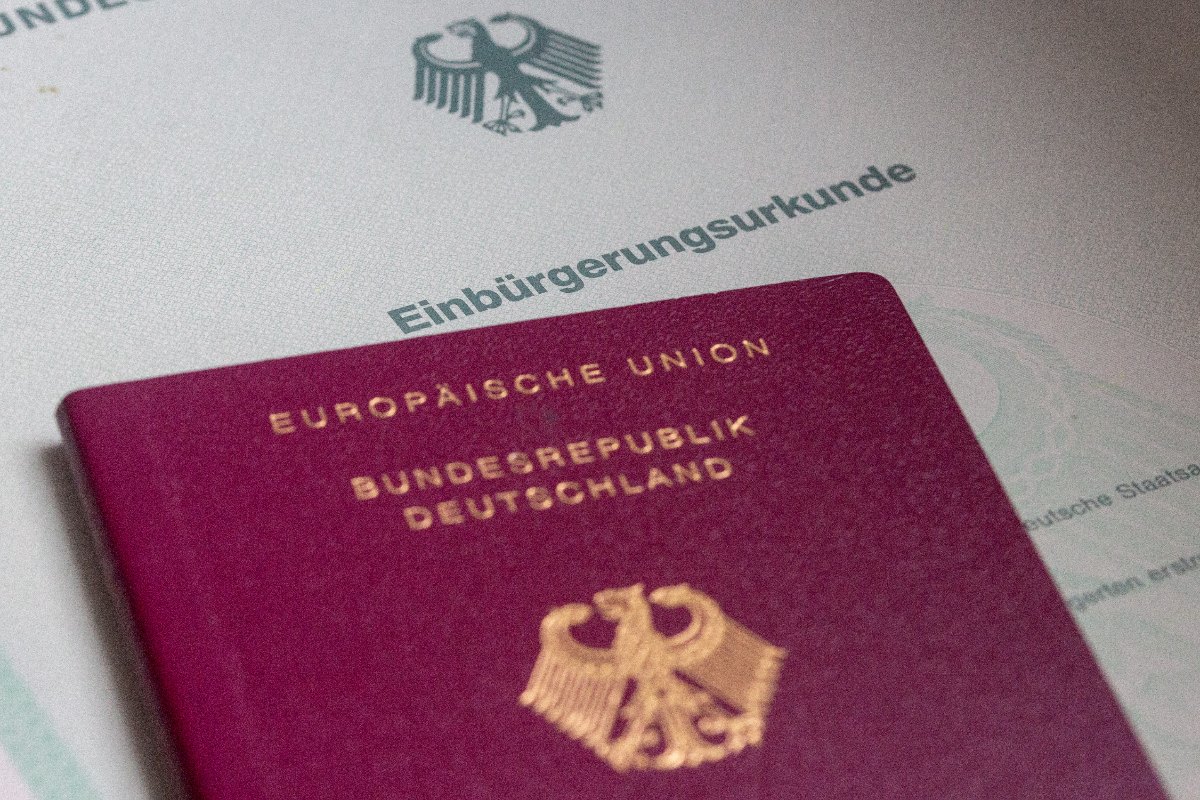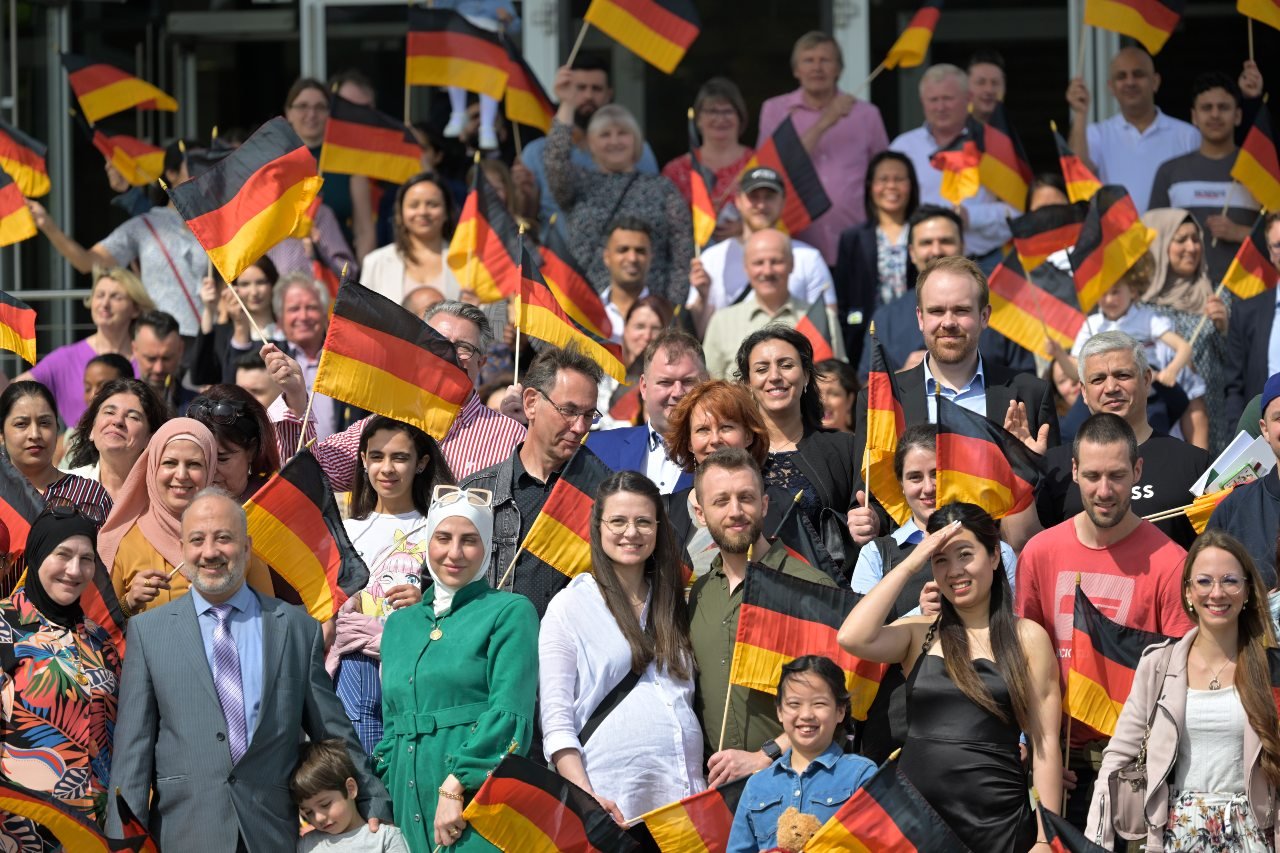What would German citizenship mean to foreign residents?

With Germany's new citizenship law coming into effect before the end of June, we asked prospective applicants what naturalisation would mean to them. Here's what they said.
June 27th is a highly anticipated date for many foreign nationals, as Germany’s new dual citizenship rules will officially come into effect.
As some eager citizens-to-be gather documents, study German, and generally get their ducks in a row, we asked our readers if they plan to apply and what naturalisation would mean to them.
Of 121 readers who took our survey, 81 percent do intend to apply for citizenship whereas 12 percent are still unsure.
About six percent said they will not apply, and the remaining few had already naturalised.
Freedom of movement and a strong passport
Citizenship is certainly more than just a permanent residency visa. It means a lot of different things to different people.
For some, the primary benefits of citizenship do come down to living more easily and more securely in Germany. Of course, gaining one of the world’s most powerful passports doesn’t hurt either.
Asked what getting German citizenship means, freedom of movement and gaining the ability to freely leave Germany and return without issue were common answers.
READ ALSO: Can I get German citizenship and immediately move abroad?
“Free movement with the world's strongest passport is the main goal here,” said Khandakar Rahman, 42, from Bangladesh. “I can live in Germany with my family as long as I want and the future of my children is secured. I can change my job any time without fear. I can live outside Germany without a time limit or losing residency.”

A German citizenship certificate and passport. Photo: picture alliance/dpa | Fernando Gutierrez-Juarez
“Easier travel” and “freedom of movement” were mentioned by many readers, including some navigating unique circumstances.
Mark Dodel, 67, who lives in the United States, noted that he is applying for “blood citizenship”, or citizenship based on German ancestry, “to make travel easier”, and also to pass dual citizenship onto his daughter who has lived in Germany for eight years.
Dodel also noted that German citizenship, “provides a potential escape if the US goes completely down the fascist rabbit hole”.
Sara, 35, who has lived for seven years in Germany said, “Don't tell the Germans, but for me it's more about having EU citizenship than German citizenship.”
As a scientist, Sara would like to have the ability to move to the Netherlands or Denmark when job opportunities arise.
Becoming more fully integrated
For others, citizenship is seen as a big and important step toward integrating with German society.
On a democratic level, it grants the right to vote, for instance.
Kristian, 35, from Norway said they look forward to, “Finally be an EU citizen, to be able to vote, and also to actually be German.”
Norwegians, along with citizens of Iceland, Liechtenstein and Switzerland, have the same freedom of movement as EU citizens – which allows them to reside and work in Germany. But they cannot vote in either German or EU elections.
READ ALSO: How do the 2024 European elections work and when will we know the results?
Hilary Raeburn, 77, would also like to participate in both national and EU elections. But she adds that citizenship would “increase [her] sense of belonging”.
Raeburn is not alone in putting a high value on the intangible sense of belonging that citizenship promises. Many readers highlighted their desire “to be German” or to become more integrated.
Some readers noted that integration at the citizenship level also guarantees certain privileges for their children or grandchildren.

A group of newly naturalised Germans attend a naturalisation ceremony in Saxony. Photo: picture alliance/dpa | Matthias Rietschel
“Becoming a German citizen means opportunities for me and the generations following me,” said Donnie, 31, who is currently waiting for an appointment. He added that becoming naturalised would also mark the "culmination of years of hard work to make it in Germany.”
For now, however, Donnie’s years of perseverance continue. He notes that he is applying in a smaller Kreis (District) that has historically granted only about 80 citizenships per year, and says that the process there is frustratingly slow and opaque.
Safety and the promise of belonging to Europe
For those coming from countries that are either less politically stable or less prosperous, achieving German citizenship may feel like a badly needed lifeline – a ticket to security and a promise that you cannot be forced to leave.
For Dilara, 30, from Turkey, citizenship means “safer future planning”.
Roman, 24, who comes from Russia and has lived in Germany for nine years, says citizenship means "peace of mind, [and a chance] to settle down and forget about the misery of my country of origin.”
For Vivian Miranda, from the Philippines, legally becoming a European citizen would be "a dream come true”. She added that she previously lived in Italy for 12 years, but never had a chance to apply for citizenship there, and credits Germany for granting her new opportunities despite her age (53).
“I love the social and federal government of Germany,” she said.
Finally, a number of British expats say they are all too eager to regain their European ties: “It's important to me that I will then also be an EU citizen again, which was something I lost when Brexit came into force,” said Laura, 34, who has been in the Bundesrepublik since 2016.
Andrew Gilroy, 71, agrees. He would like to reclaim his European citizenship “after it was stolen by Brexit”.
READ ALSO: 'Dexit' would cost Germany '€690 billion and millions of jobs'
Comments
See Also
June 27th is a highly anticipated date for many foreign nationals, as Germany’s new dual citizenship rules will officially come into effect.
As some eager citizens-to-be gather documents, study German, and generally get their ducks in a row, we asked our readers if they plan to apply and what naturalisation would mean to them.
Of 121 readers who took our survey, 81 percent do intend to apply for citizenship whereas 12 percent are still unsure.
About six percent said they will not apply, and the remaining few had already naturalised.
Freedom of movement and a strong passport
Citizenship is certainly more than just a permanent residency visa. It means a lot of different things to different people.
For some, the primary benefits of citizenship do come down to living more easily and more securely in Germany. Of course, gaining one of the world’s most powerful passports doesn’t hurt either.
Asked what getting German citizenship means, freedom of movement and gaining the ability to freely leave Germany and return without issue were common answers.
READ ALSO: Can I get German citizenship and immediately move abroad?
“Free movement with the world's strongest passport is the main goal here,” said Khandakar Rahman, 42, from Bangladesh. “I can live in Germany with my family as long as I want and the future of my children is secured. I can change my job any time without fear. I can live outside Germany without a time limit or losing residency.”

“Easier travel” and “freedom of movement” were mentioned by many readers, including some navigating unique circumstances.
Mark Dodel, 67, who lives in the United States, noted that he is applying for “blood citizenship”, or citizenship based on German ancestry, “to make travel easier”, and also to pass dual citizenship onto his daughter who has lived in Germany for eight years.
Dodel also noted that German citizenship, “provides a potential escape if the US goes completely down the fascist rabbit hole”.
Sara, 35, who has lived for seven years in Germany said, “Don't tell the Germans, but for me it's more about having EU citizenship than German citizenship.”
As a scientist, Sara would like to have the ability to move to the Netherlands or Denmark when job opportunities arise.
Becoming more fully integrated
For others, citizenship is seen as a big and important step toward integrating with German society.
On a democratic level, it grants the right to vote, for instance.
Kristian, 35, from Norway said they look forward to, “Finally be an EU citizen, to be able to vote, and also to actually be German.”
Norwegians, along with citizens of Iceland, Liechtenstein and Switzerland, have the same freedom of movement as EU citizens – which allows them to reside and work in Germany. But they cannot vote in either German or EU elections.
READ ALSO: How do the 2024 European elections work and when will we know the results?
Hilary Raeburn, 77, would also like to participate in both national and EU elections. But she adds that citizenship would “increase [her] sense of belonging”.
Raeburn is not alone in putting a high value on the intangible sense of belonging that citizenship promises. Many readers highlighted their desire “to be German” or to become more integrated.
Some readers noted that integration at the citizenship level also guarantees certain privileges for their children or grandchildren.

“Becoming a German citizen means opportunities for me and the generations following me,” said Donnie, 31, who is currently waiting for an appointment. He added that becoming naturalised would also mark the "culmination of years of hard work to make it in Germany.”
For now, however, Donnie’s years of perseverance continue. He notes that he is applying in a smaller Kreis (District) that has historically granted only about 80 citizenships per year, and says that the process there is frustratingly slow and opaque.
Safety and the promise of belonging to Europe
For those coming from countries that are either less politically stable or less prosperous, achieving German citizenship may feel like a badly needed lifeline – a ticket to security and a promise that you cannot be forced to leave.
For Dilara, 30, from Turkey, citizenship means “safer future planning”.
Roman, 24, who comes from Russia and has lived in Germany for nine years, says citizenship means "peace of mind, [and a chance] to settle down and forget about the misery of my country of origin.”
For Vivian Miranda, from the Philippines, legally becoming a European citizen would be "a dream come true”. She added that she previously lived in Italy for 12 years, but never had a chance to apply for citizenship there, and credits Germany for granting her new opportunities despite her age (53).
“I love the social and federal government of Germany,” she said.
Finally, a number of British expats say they are all too eager to regain their European ties: “It's important to me that I will then also be an EU citizen again, which was something I lost when Brexit came into force,” said Laura, 34, who has been in the Bundesrepublik since 2016.
Andrew Gilroy, 71, agrees. He would like to reclaim his European citizenship “after it was stolen by Brexit”.
READ ALSO: 'Dexit' would cost Germany '€690 billion and millions of jobs'
Join the conversation in our comments section below. Share your own views and experience and if you have a question or suggestion for our journalists then email us at [email protected].
Please keep comments civil, constructive and on topic – and make sure to read our terms of use before getting involved.
Please log in here to leave a comment.